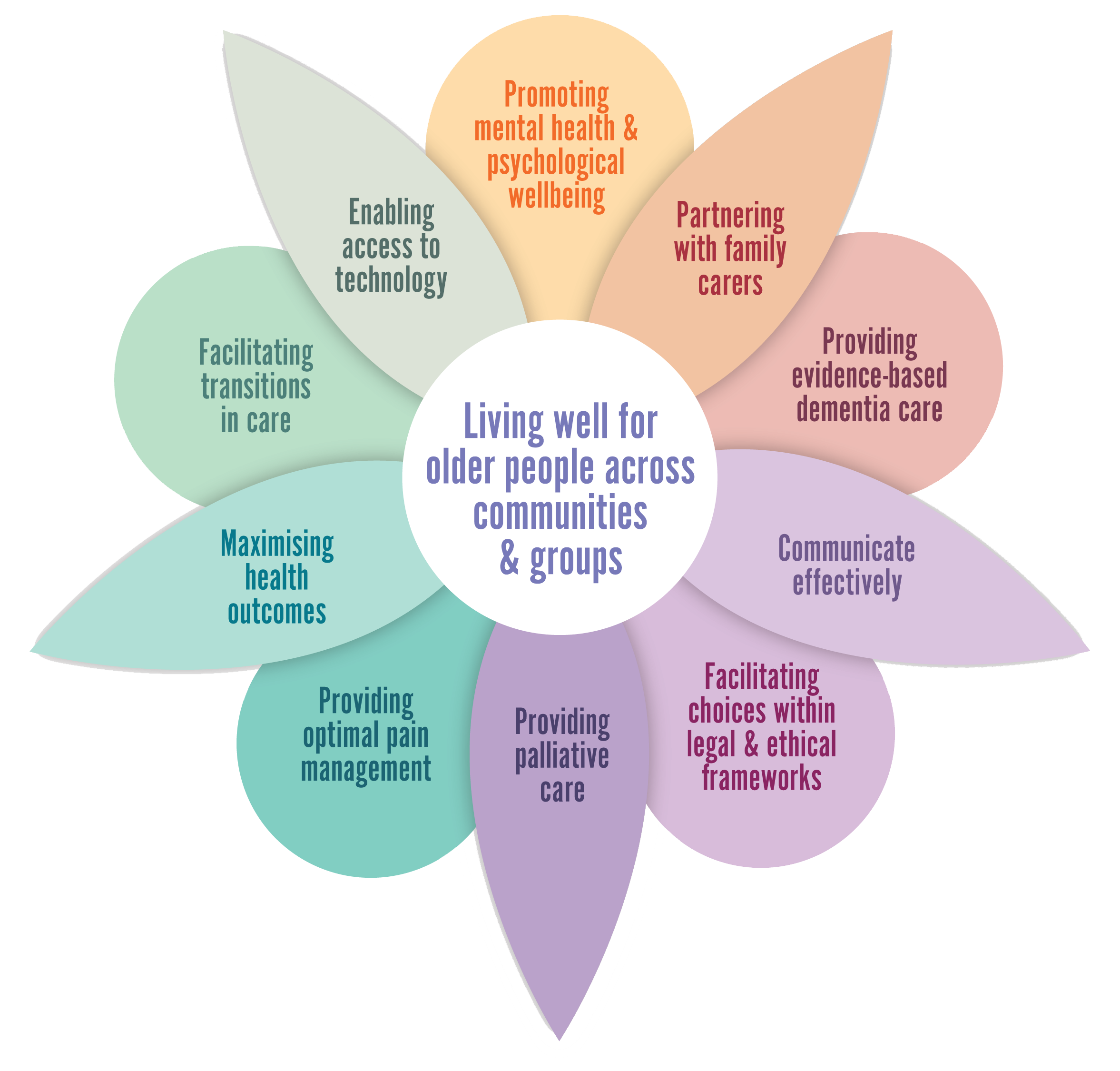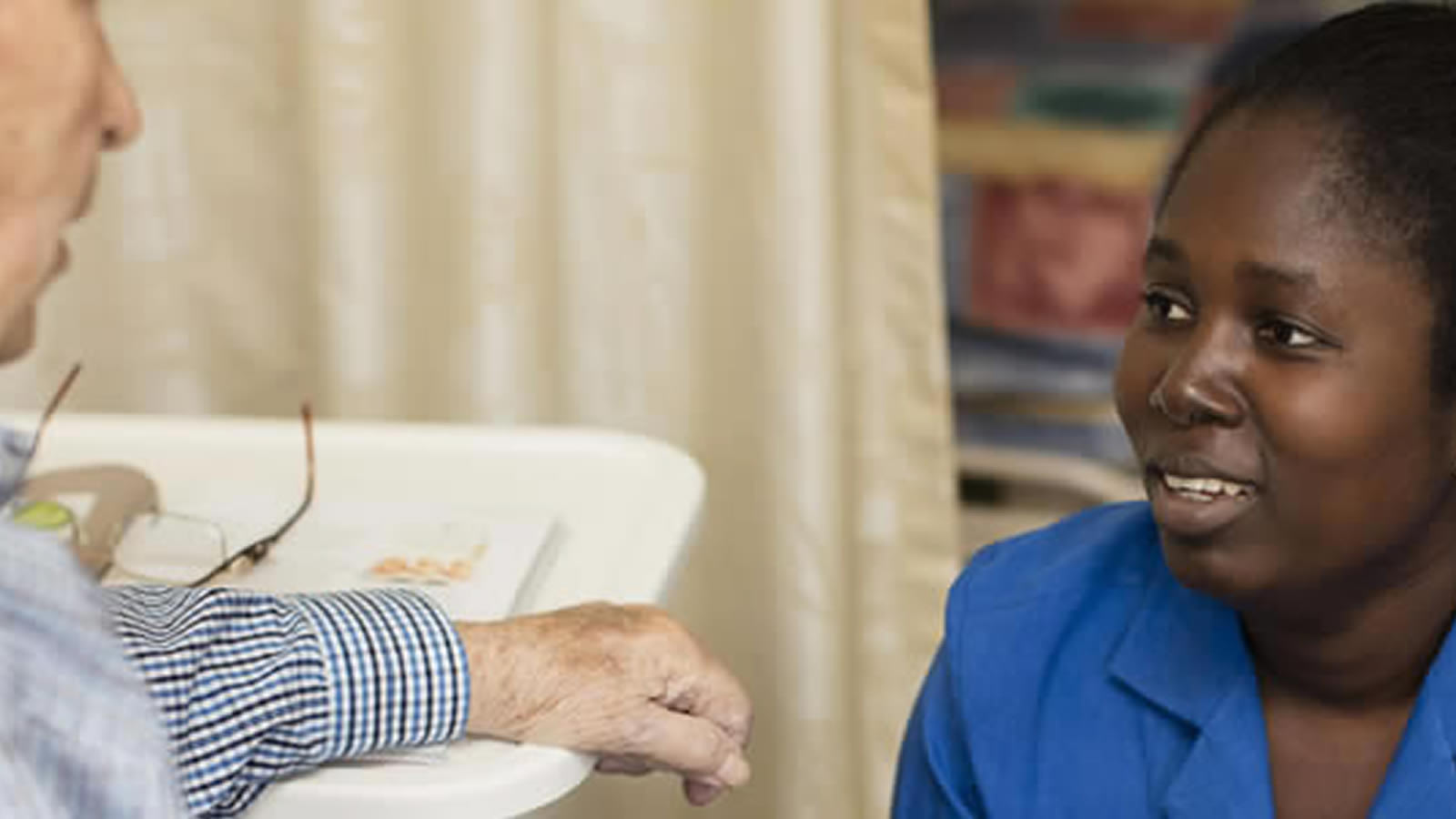The University of Wollongong (UOW) has been selected by the Australian Government to help develop Australia’s aged care nursing workforce under a new Australian Government initiative.
Aged Care Transition to Practice Program
UOW's Aged and Dementia Health Education and Research program was selected among three successful tenders nationally to deliver specialised training programs over three years for Registered Nurses (RNs) under the Aged Care Transition to Practice (ACTTP) initiative.
The initiative, delivered with partners the University of Canberra and Leading Aged Services Australia, aims to increase the availability of RNs with the required experience and education in aged care to meet the growing care needs of older Australians by attracting up to 740 new nurses to the aged care sector across all three providers.
UOW’s program will guide nurses in their first year of clinical practice through mentorship, professional development, and specialist education to help them increase their skills and capabilities and encourage them to pursue aged care nursing practice.

Expressions of Interest
Expressions of interest are currently open for the Aged Care Transition to Practice program.
Apply now Contact us
Program Details
- Background to the UOW ACTPP programme
- Gerontological Nursing Competencies
- Structure of the GNCs programme
- Content
- Delivery mode of the GNCs programme
- Outcome for participants
In 2015, a team at UOW was invited by the Nursing in Aged Care Collaborative (NACC) to develop gerontological nursing competencies (GNCs). Since that time, UOW has been successful with research and partnership funding to develop and pilot the implementation of the GNCs. A group of 15 aged care providers and three universities participated in the process of developing and testing the GNCs.
The GNCs were developed from online surveys with a wide stakeholder group (n=450). The GNCs consist of 11 core competencies and 33 domains of practice (DoP). The GNCs have an Essential and Advanced Level of Practice:
- Essential LoP consists of 27 DoP;
- Enhanced LoP consists of 6 DoP.
An implementation process to enable registered nurses to demonstrate their specialist gerontological nursing competence was developed and trialled by the NACC partners.
The UOW Consortium focuses on using the Gerontological Nursing Competencies (GNs) to enable new graduates to complete specialist pathways:
- Essential GNC
- Enhanced GNC
Both pathways are structured around six-month programmes. Two distinct pathways were created to explicitly create a progressive career pathway to enable the participants to gain specialist gerontological nursing credentials at six month and 12-month landmarks. These landmarks will inform the specialist gerontological nursing journey of the RNs.
Our industry collaborators will nominate groups of RNs to join Essential and Enhanced cohorts each six- months. Each cohort will be a group of up 25 RNs from across our industry collaborators to complete the (1) Essential and (2) Advanced GNCs programme. After six months and cohort 1 completes the Essential GNC, Essential and Advanced cohorts will simultaneously undertake the GNCs every six months.
All participants are new graduates and therefore their university education has provided them with the opportunity to gain the necessary skills and knowledge to become RNs. A new graduate year focuses on enabling the new qualified RNs to implement their learning from their undergraduate degree to deliver nursing care that promotes the health and well-being of the consumers and family carers who they work with as well as supervise other members of the healthcare team and supervise student nurses. The purpose of the GNCs programme is to provide the new graduate RNs with the opportunity to develop their specialist geronological nursing competence within aged care. The GNCs will achieve this by guiding the RNs through a 5-steps programme consisting of: mentoring, self-assessment, action planning, generating evidence and portfolio development.
The RN new graduates who undertake the GNCs programme are facilitated to work with a mentor, complete an assessment of their current gerontological nursing competence, action plan to develop their competence, generate evidence about their competence and present evidence of geronological nursing competence in a professional portfolio. The GNCs programme focuses on developing the new graduate RNs as independent lifelong learners who can lead their own professional development.
The content for the GNCs programme will be delivered via a distance learning. The RNs will complete the GNCs programme using a digital online learning platform with support from a facilitator to complete the learning activities and work based activities required to successfully complete the programme. Platform using mentors will be allocated a separate site. There will be separate instances of the learning.
The GNCs programme is delivered using online distance learning and virtual video conferencing. A digital online learning platform will be used to enable the participants to complete the GNCs programme. Separate digital ‘instances’ will be created for each cohort of RNs. Each cohort (Essential and Enhanced) will be offered a set of virtual (video link) workshops (n=3) and regular online forum discussions in their dedicated digital ‘instant’.
A dedicated facilitator will be allocated to each cohort. The facilitators will deliver the three virtual workshops each cohort participates in and they will have an online presence to moderate the discussion forums created to support completion of each of the five steps in the GNCs programme. Each participant will also be allocated a mentor to support them to complete the GNCs programme.
Mentors will meet with their mentees via virtual video conferences and communicate with them via the online discussion forums. Mentors will meet with the mentees regularly throughout the GNCs programme.
During the GNCs programme, the RNs will be supported to create a portfolio of evidence to demonstrate their competence as an Essential and Advanced gerontrological nurse. At the end of the programme the RNs will submit their portfolio of evidence to their mentors and facilitators for review. Successful portfolios of evidence will be endorsed as a demonstration of specialist gerontological practice of the RNs at as Essential LoP and Advanced LoP.
At the end of each landmark, participants will be awarded a certificate of competence for their gerontological nursing specialist practice:
- Essential LoP; and
- Enhanced LoP.
All participants who complete the GNCs programme will be eligible to submit their GNC certificates as evidence of recognition of prior learning/ advance standing/ credit for a graduate certificate or master’s degree.
The Aged Care Transition to Practice (ACTTP) initiative received funding from the Australian Government Department of Health.